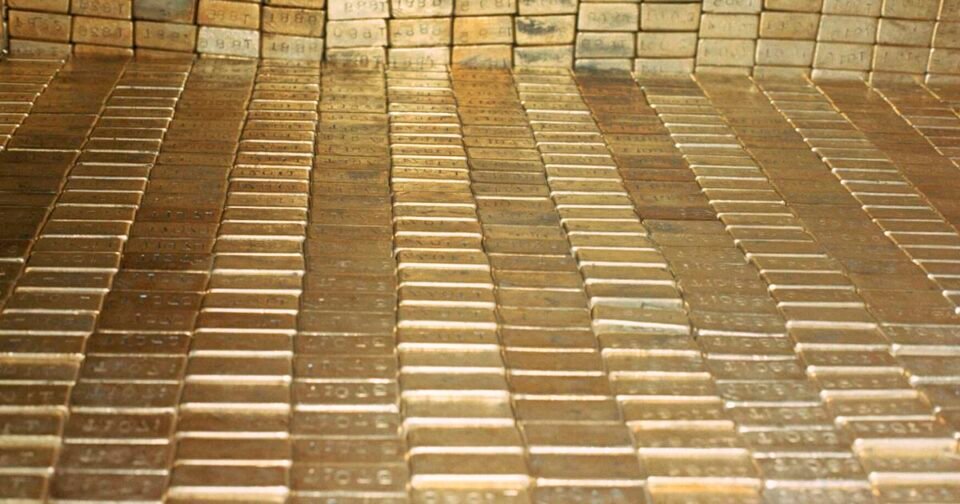What Oklahoman doesn’t long for a state-operated Fort Knox to store their gold and silver bullion?
OK, probably not that many. But also maybe more than the average person might think.
Surveys suggest that 10% to 12% of American adults own gold or silver. To what extent Oklahoma fits the profile is unknown, but it is among a wave of mostly conservative states considering state-owned bullion depositories that issue debit cards allowing depositors to draw against the cash value of their precious metals.
At least two such bills have been filed for the upcoming session: Senate Bill 1351 by Sen. David Bullard, R-Durant, and SB 1507 by Sen. Shane Jett, R-Shawnee.
Similar bills filed in recent years have gone mostly nowhere, but there does seem to be something of a national push to get states into the bullion business.
People are also reading…
Bullion is a form of precious metal, usually gold or silver, reduced to a high degree of purity and stored as bars, ingots or coins. It is generally considered a relatively safe long-term investment that tends to become more popular during times of high inflation and economic instability.
The option allowing account owners to essentially spend against their deposits is a relatively new wrinkle, though. In that respect, they would act more like cashless banks or a digital currency system than Fort Knox, which is basically the world’s strongest warehouse.
Bullard said he doesn’t own any bullion but thinks a depository could be a boon for the state.
“It would mean more people investing in Oklahoma,” he said.
Bullard’s bill would require the state treasurer to establish the depository and manage it. The depository would not engage in commodity or derivative trading, according to the bill’s language, and could accept any precious metals, including platinum and palladium, a rare material used in catalytic converters, among other things.
Jett’s bill is similar but would require the state to keep 10% of its assets in gold and silver.
According to the Sound Money Defense League, which advocates a return to gold-backed currency, no state currently holds any gold or silver reserves.
Texas created a state bullion depository almost a decade ago, apparently with the idea of persuading the independent corporation managing the University of Texas and Texas A&M’s $71 billion portfolio to move about $800 million in gold and silver it was holding from New York.
The corporation said commodity exchange rules made that problematic, and it wound up selling the bullion instead.
It is unclear how much bullion the Texas depository holds, but by most accounts it has not been particularly successful. At least one privately owned depository has since opened.
Bullard said he is new to the subject but believes that an Oklahoma depository would be attractive to both investors who want “transactional” access to their gold and silver holdings and people who want to return to some form of bullion-backed monetary system.
“It was much better when gold was the standard,” Bullard said.
A lot of economists argue otherwise. They point out that economic panics and bank failures were much more common under the gold and bimetal systems that prevailed for most of U.S. history up to 1971. Blame is frequently attributed to the inflexibility of the monetary system.
Metalists, on the other hand, argue that untethered currency interferes with free markets and contributes to inflation.
The practical and philosophical arguments over fiat currency versus commodity-backed currency are many, complex and arcane — and sometimes tinged with self-interest.
Among those advocating greater use of gold and silver in the U.S. economy are people, companies and organizations who trade in gold and silver.
There are also tax considerations. A decade ago, Oklahoma exempted gold and silver bullion trades from state sales tax. They are now taxed under the capital gains laws, but an effort is underway to lessen that burden.
Capital gains taxes generally apply only when the asset in question is sold. How that would fit into a transaction in which a depository debit card is used to buy goods or services is likely one of the details still to be worked out.
Gold, silver and precious metals are also popular with some segments advocating for reduced federal government influence, particularly in regard to monetary policy.
Users can customize the app so you see the stories most important to you. You can also sign up for personalized notifications so you don’t miss any important news.
If you’re on your phone, download it here now: Apple Store or Google Play

